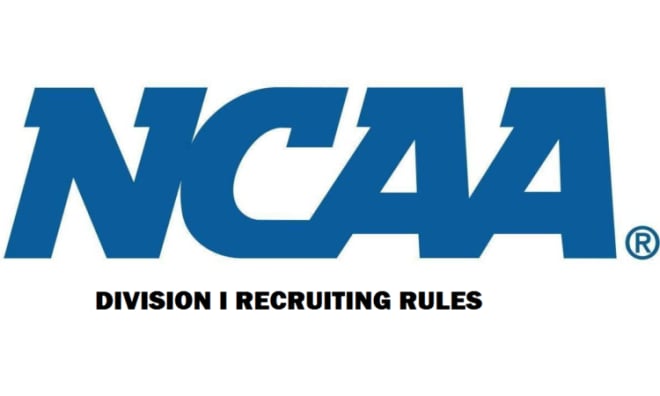Sweeping Recruiting Changes Raise Questions

The New Year rushed in sweeping changes across the basketball landscape that have coaches, event organizers, and media questioning if the leadership of the NCAA is seeking a totalitarian state.
This summer a new men’s college recruitment schedule for the 2018-19 was released.
Quiet period dates: August 1-31st, September 1-8th, April 1-3rd, 25th, May 3-15th, 25-31st, June 1-12th, 15-20th, 16-20th, 24-27th and July 1-5th.
The quiet period is for only in-person recruiting contacts made only on the college’s campus. No in-person, off-campus contacts or evaluations.
Recruiting period dates: September 9-30th, October 1-31st, November 1-11th, 16-30th, December 1-23rd, 27-31st, January 1-31st, February 1-28th, March 1-31st, April 12-14th, 19-24th, 29-30th, and May 1-2nd.
The recruiting period is where authorized athletic department staff may make in-person, off campus recruiting contact and evaluation.
Evaluation period dates: April 26-28th, June 13-14th, 21-23rd, 28-30th, July 11-14th, and 23-28th.
The evaluation period authorized athletic department staff may engage in off campus activities designed to assess the academic qualifications and playing ability of a recruit. Non-scholastic events certified by the NCAA are April 26-28th, July 11-14th. NBAPA Top 100 camp June 13-14 ends at 2pm on June 14th. The new evaluation periods begin June 21-23rd and 28-30th at scholastic events approved by the National Federation of State High School Associations or two-year college athletics governing body NJCAA, CCCAA, NWAC. NCAA youth development camps are July 23-28th. No in-person, off campus contact is allowed with a recruit during the evaluation period.
Dead period dates: November 12-15th, December 24-26th, April 4-10th, 15-18th, May 16-24th, July 6-10th, 15-22nd, 29-31st.
The dead period there is no-in-person or off campus contact or evaluation. Official and unofficial visits by recruits to a college are not permitted. Dead period ends and the recruiting period begins at noon April 11th.
Fast forward to December the NCAA announced a new regional camp model. The camps will be held on the campuses of the Grand Canyon, Houston, Illinois and UConn, which will replace evaluation period AAU tournaments in Las Vegas and in Orlando. The three day session camps will host 300 campers in each session, 2,400 players in total across the country. So who chooses the campers? The players and coaches nominate themselves and then the NCAA and the NABC will select the campers. During July, the evaluation period is replaced by two live weekends for high school coaches and their federations to put on tournaments.
This January, the NCAA sent out an email to compound the already complicated new rules and events that exist. The email was directed at event organizers, and teams prepping them for the upcoming basketball certification process. The new changes listed in the email were collection of more information and required eligibility center registration for participating athletes. There is a new requirement of financial transparency for all event operators and participating teams, which may require team organizations and the leaders to register in the BBCS.
This week, the already exasperating process got hit with a hard pass by the Basketball Coaches Association of New York. The BCANY announced they will not host, nor operate an NCAA Division I men’s basketball scholastic recruiting event in June of 2019. The reason for their decision is the restrictive criteria established by the National Federation of High Schools that only students from the NFHS member schools will be allowed to participate.
“This policy prohibits participation of high school players from any high school in New York City. Not allowing players from catholic, private and public schools in NYC to participate is unjust and wrong. The BCANY has coaches at all levels throughout the state of New York. The primary function of the BCANY is advocating for all players and coaches from all schools throughout the state. The BCANY could not operate an event in good conscience, which leaves out a segment of New York State.”
The New York State Public High School Athletic Association NYSPHSAA also announced they will not host an event. New York is not alone Texas, North Carolina, and South Carolina is forced to make these morally unjust decisions.
The game of high school basketball has grown so much over the years. However, the one thing that cannot be altered is every player no matter what level of play or where he attends school deserves a chance to be evaluated and seen by college coaches. These players are amateurs in the eyes of the NCAA but the new rules propose big business, design to help one not all. There is a clear path, but the new found leadership lacks a moral compass to guide them there.
